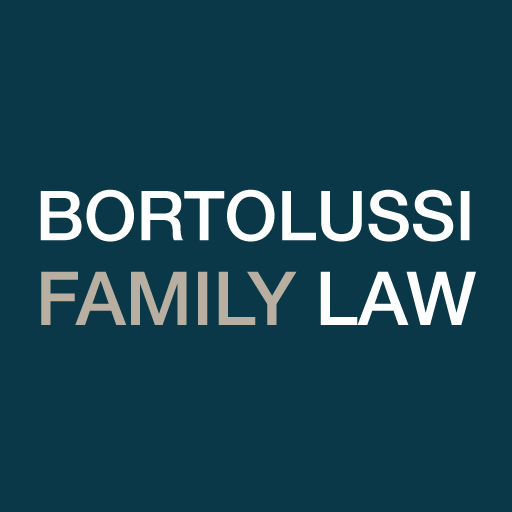Conspiracy & Hidden Income or Assets After a Divorce

One of the most important elements of a fair and equitable divorce is for each party to be transparent and upfront when providing a list of their assets and liabilities as of the date of separation. Much of the work involved in a divorce involves determining each person’s rights and responsibilities regarding the division of family property and spousal and child support. For this process to work, financial honesty is a fundamental requirement. Unfortunately, not all parties take this responsibility seriously, and may attempt to undermine the process by hiding assets, underreporting their income, or otherwise doctoring their financial status to reduce their obligations to their former spouse or children.
A person found to be concealing assets in a family law dispute will often face sanctions by the court. However, other people are often involved, helping the litigant conceal or hide wealth. Sometimes family members, friends, or even employers might assist by sheltering assets or helping the person misrepresent their income during a divorce settlement. These people often do not face consequences, as they are not directly involved in the dispute. However, in 2020, the Court of Appeal opened up the potential for bringing a claim of conspiracy against third parties who help a family law litigant hide assets or income.
The Importance of Full Financial Disclosure
Each party separating from or divorcing their spouse must disclose and value all assets, liabilities, and income from all sources. The net value of all property acquired during the marriage must be equalized. This can be a very complex and time-consuming undertaking, especially for high-net-worth families with diverse financial portfolios. Tallying the net family assets is also a frequent point of dispute. Some spouses may attempt to exclude certain property from equalization or hide assets to avoid sharing their value or reduce their support obligations.
The Impact of Hidden Assets or Misrepresented Income in Family Law Disputes
One of the most important things to remember is that full disclosure of all assets is mandatory in a separation. If a spouse is found to have hidden or transferred particular property to avoid equalization, they could face repercussions from the court, such as a requirement to pay additional legal costs or damages. Further, if a court finds that a spouse has misrepresented their income or they are deliberately underemployed, the court has the authority to impute additional income to the spouse when calculating spousal and child support.
If a person has reason to believe their former spouse has hidden or diverted assets in the divorce or separation process, it may sometimes become necessary to bring in a forensic accountant or other experts to trace and locate the assets so they can be included in the process.
The Tort of Conspiracy & Hidden Assets
In many cases where a spouse attempts to conceal or hide assets during a divorce, they are not acting alone. Other people often assist them by providing temporary shelter for these assets. After all, if a person wants to reduce their wealth quickly but not permanently, they will sometimes enlist family members or close friends to whom they can transfer these assets for a certain time. Then, once the dust has settled on the divorce, they will transfer the assets back to them. Until relatively recently, those individuals who help family litigants shield income or other assets have not had to worry about facing consequences for their complicity.
This issue was brought into focus in the 2020 Ontario Court of Appeal decision in Leitch v. Novac et al. In that case, the parties had been married for 15 years before the breakdown of their relationship. The husband was employed with his father’s successful casino gaming business. In 2013, the business incorporated a company to manage a casino in Alberta, which provided the husband with 40% of the management fee under the contract. Two years later, the casino bought out the contract for nearly $6 million. However, the entirety of the proceeds went to the husband’s father. The wife alleged that 40% of the proceeds should have gone to the husband, but the father had conspired with his son to divert the proceeds to him to reduce the son’s spousal support obligations to the wife.
Wife brought claim of conspiracy against husband’s parents
The wife brought a claim of conspiracy against her husband’s parents, the corporation, and certain family trusts, in addition to her family law claims for support against her husband. The Ontario Superior Court awarded summary judgment to the defendants of the conspiracy claim, saying that allowing such a claim against third parties in a family dispute would open up the possibility for a dangerous “new norm”. The judge noted that the current family law scheme already provides a method to address hidden income by allowing income to be imputed to a spouse when necessary.
“Nondisclosure is the cancer of family law”: Court of Appeal
The wife appealed, and the Court of Appeal overturned the lower court’s decision, holding that a refusal to allow a claim for conspiracy in family disputes would be akin to allowing co-conspirators to engage in such behaviour with impunity. Instead, the tort of conspiracy should be viewed as “a valuable tool in the judicial toolbox to ensure fairness in the process and achieve justice” in family law matters.
The Court of Appeal summed up the need to use all possible tools to combat the non-disclosure of assets in family law as follows:
“[N]ondisclosure is the cancer of family law… [It] metastasizes and impacts all participants in the family law process. Lawyers for recipients cannot adequately advise their clients, while lawyers for payors become unwitting participants in a fraud on the court. Judges cannot correctly guide the parties to a fair resolution at family law conferences and cannot make a proper decision at trial. Payees are forced to accept an arbitrary amount of support unilaterally determined by the payor. Children must make do with less. All this to avoid legal obligations, which have been calculated to be a fair quantification of the payor’s required financial contribution. In sum, nondisclosure is antithetical to the policy animating the family law regime and to the processes that have been carefully designed to achieve those policy goals.”
For Skilled Advice on Financial Disclosure & Hidden Assets, Contact Bortolussi Family Law in York Region
At Bortolussi Family Law, our knowledgeable divorce lawyers are dedicated to ensuring a fair equalization of property for each client. From our office in Vaughan, we assist clients across the Greater Toronto Area with all aspects of the separation and divorce process. Even in the most complex cases, our team has the experience to manage your situation and optimize results. We provide the comprehensive skills of a Bay Street firm conveniently located north of Steeles Avenue. To discuss your circumstances and learn about the options available to you, please reach out to us online or by phone at 416-987-3300.





